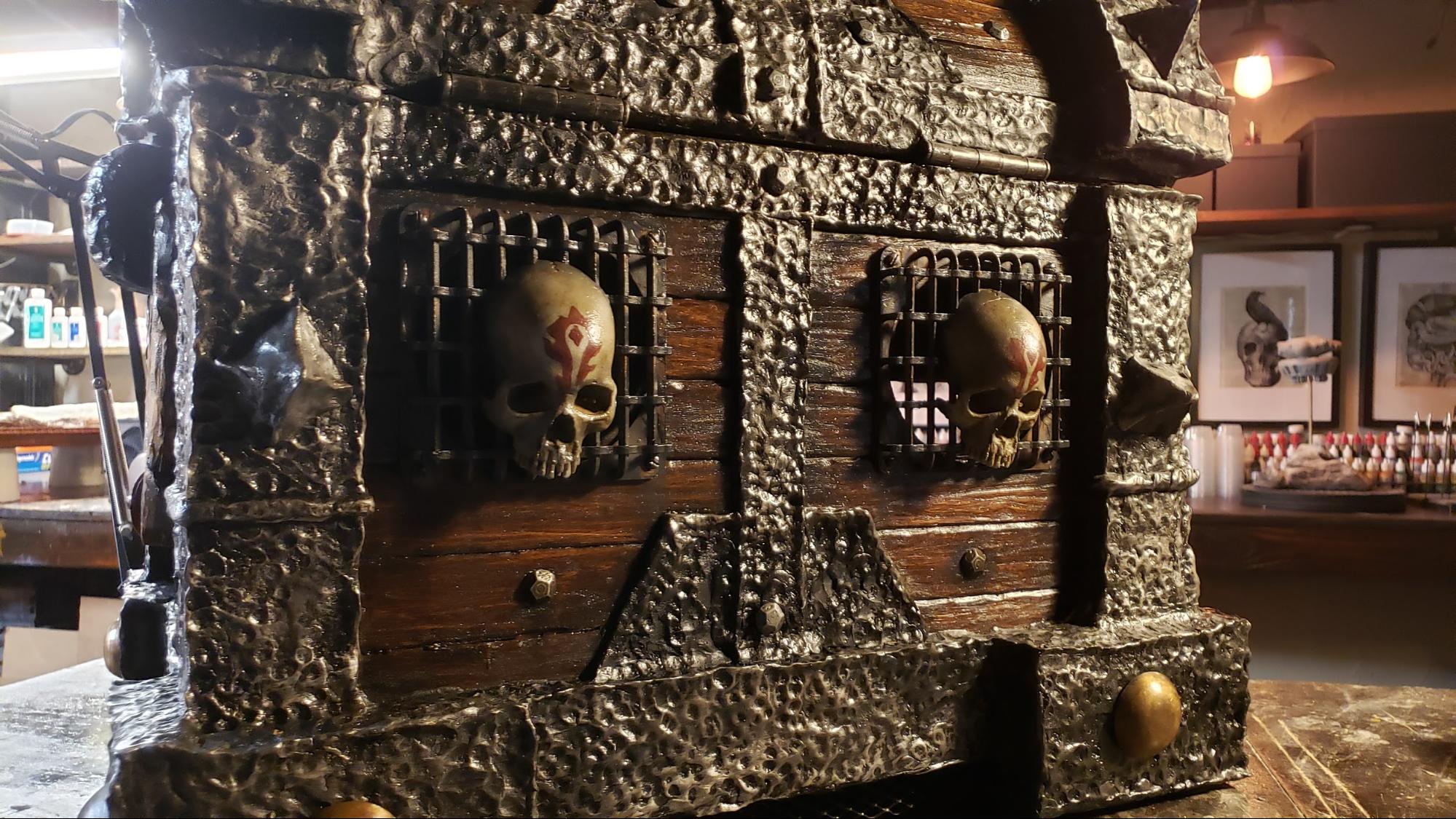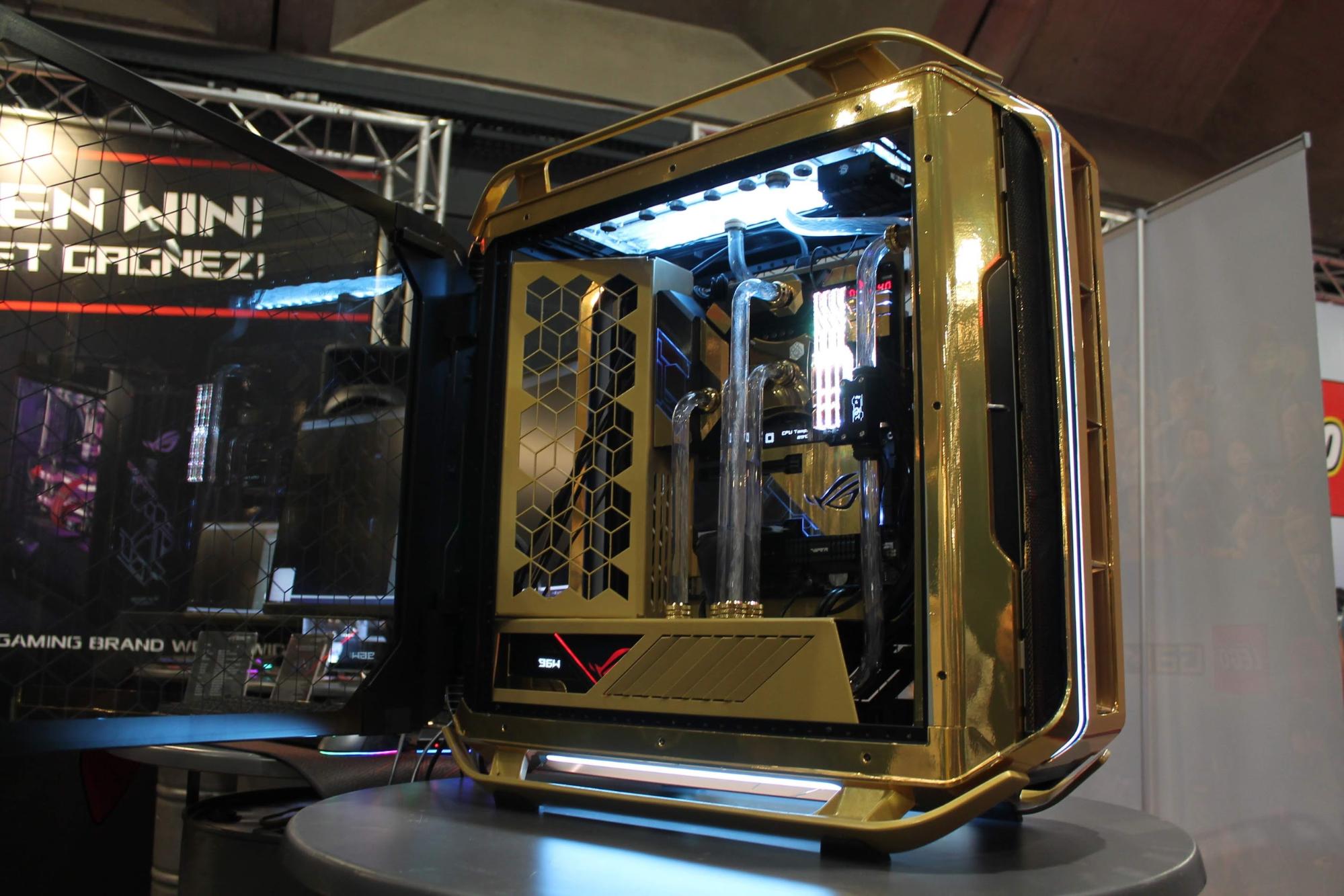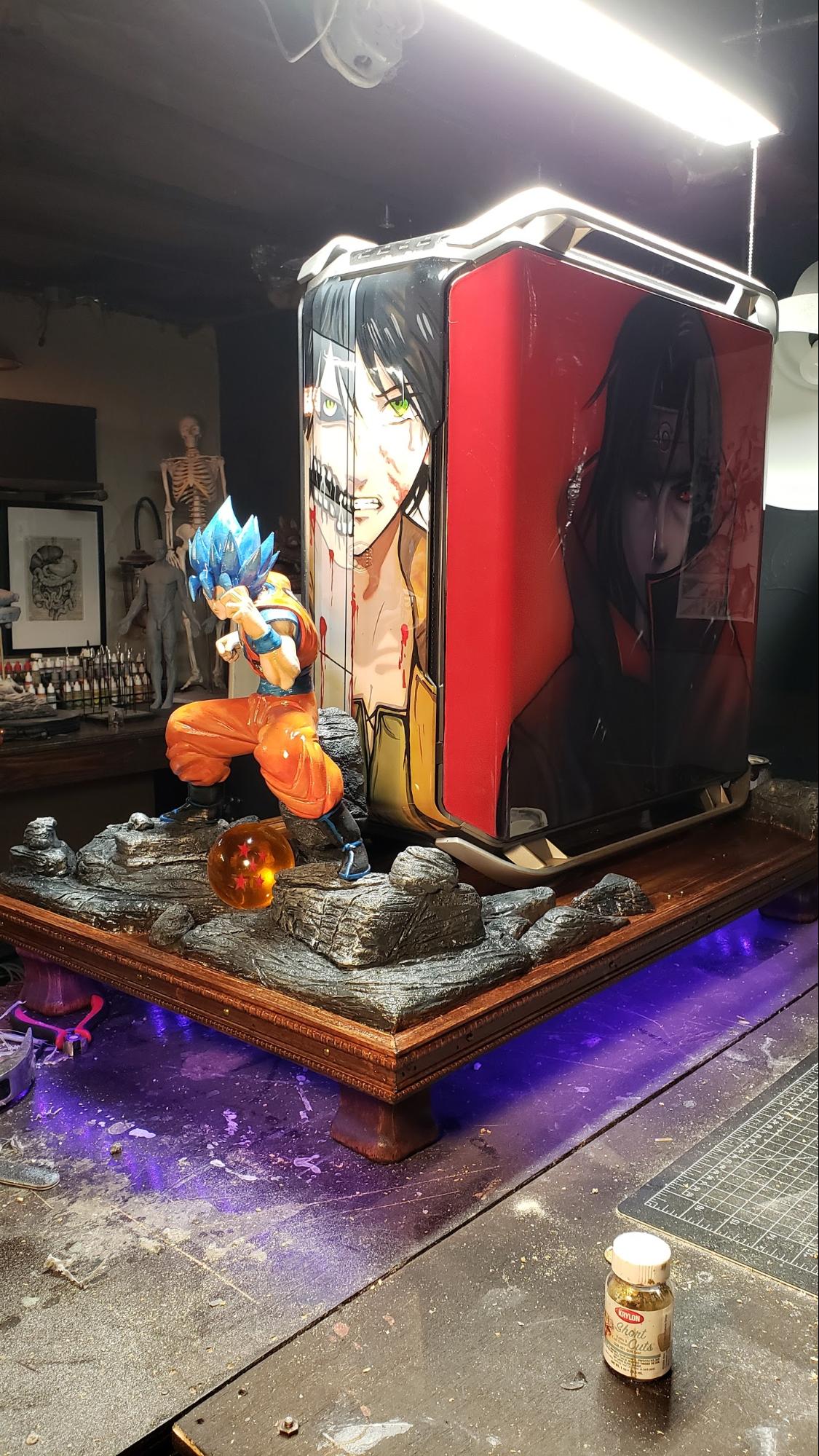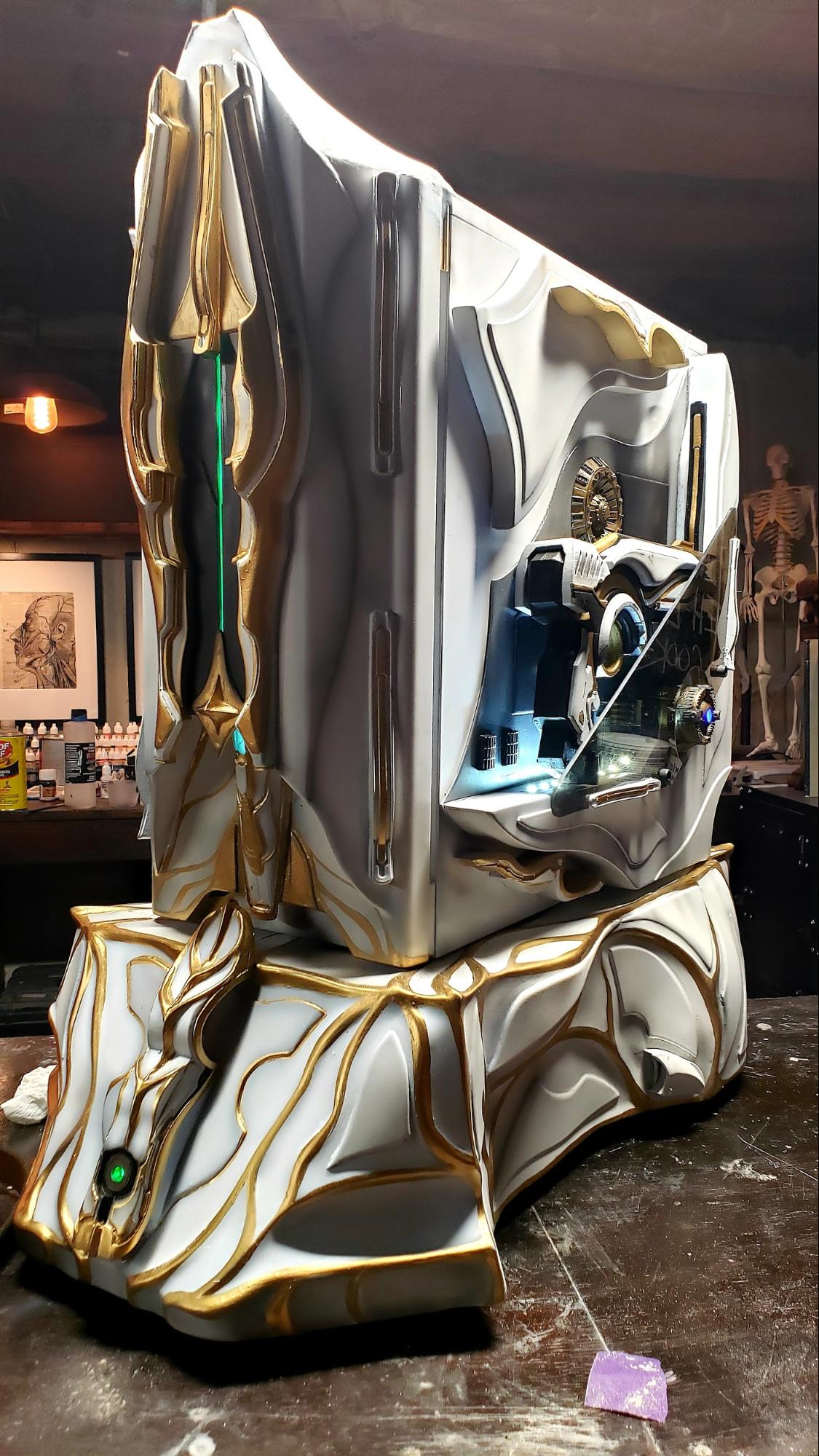So You Want to Be a Pro Modder? Experts Share Their Tips
Pro modders share their best tips for starting off and finding paid work.
Get Tom's Hardware's best news and in-depth reviews, straight to your inbox.
You are now subscribed
Your newsletter sign-up was successful
When you build your own PC, you’re constructing a custom-made machine perfectly tailored to all of your computing needs. And with the right case, maybe even one of the best PC cases, and some RGB lighting, you can add a personal touch. But with PC modding you’re able to get really personal and truly creative. That’s because when you’re modding, you’re not just creating a custom machine; you’re handcrafting a piece of art.

With the right amount of skill, dedication and perseverance, you can make a living by getting paid for custom mods or even get sponsored to create builds showed off online or at public events. We spoke to a few professional modders kind enough to share their top tips for going pro. Here’s their advice for going from modding in your basement for fun, to modding for clients for money.
1. Be prepared to spend your own money.
Sometimes you have to spend money to make money. Before businesses or individuals are willing to pay for you to make a mod for them, you have to create a good-looking portfolio with a few mods that prove you’re worth hiring. But building out that portfolio before you have any clients takes a lot of money -- up to thousands of dollars, according to Ron Lee Christianson, CEO of Washington-based Blue Horse Studios. This includes tools and materials, workshop supplies and your time and energy.
There are ways to save money, though.
“In the early years for my modding career I wasn't sponsored. Most of my projects didn't have any PC hardware inside simply because I couldn't afford to fund $3,000-$4,000 of hardware for each project on my own. I just basically modded the case, painted it and tried to make it look as cool as possible within my own personal budget,” Christianson said.
Another option is to use budget components. Christianson said you don’t necessarily have to use high-end parts in your mod, pointing out that “hardware can always be added and it’s interchangeable; the mod itself is not.”
Even if you get support or sponsorship from a vendor (more on that later), you may end up using some of your own money.
Get Tom's Hardware's best news and in-depth reviews, straight to your inbox.
“The modders need the vendor to help alleviate some of those out-of-pocket costs, but you’re still going to spend hundreds of dollars of your own money to create these pieces. The vendor also offers a larger platform for the modders work to be seen by other clients, creating better sales for everyone,” Christianson explained.
Despite this, when you’re starting out, the key is to keep on building so that you hone your skills and prove you can make showstopping mods. As Christianson said, it’s important to show you can build “one-of-a-kind” pieces that must be handcrafted by an experienced modder and can’t be purchased elsewhere.
2. Get your toolbench in order.
A modder needs its tools, and maintaining and upgrading these will be your largest cost factor. When you’re a pro, the materials required will largely depend on the needs of your current project. But what about when you’re first starting out and don’t have any specified needs?
Christianson points to the following as must-haves:
- Laser cutter
- 3D printer
- CNC router
- Airbrushing system
- Files
- Sanders
- Variety of screwdriver types
- Wrenches
- Caliper
- Saws: Table saw, band saw, miter say, jigsaw, scroll saw
- Hand rotary tools with bits and attachments
Additionally, Carter recommends you look at the materials used to make PC cases. Think:
- Steel
- Aluminum
- Plastic (acrylic, ABS, et cetera)
- Rivets
“If you plan to become a pro modder, you will inevitably be required to tear down a production case to modify it. So having those things on hand would be essential,” Carter said.
That’s not to say you won’t end up favoring certain materials. Carter, for example, likes working with acrylic.
But when it comes to particular projects, your material selection can help impact the amount of elbow grease required.

“When I think about how to build something, I go through different materials in my head and try to visualize how easy or difficult it would be and choose the material that works best,” Carter explained. “For example, bending a piece of sheet metal would be easier than heat-bending acrylic sheet. Strength of a material comes into play as well. If I’m building a frame or something structural, I’d go with aluminum or steel bar, rather than acrylic.”
3. Socialize (both online and in person).
Invested your own time and money into making some sick mods? Talk about it! Get your work on social media, on modding forums and on your own website. Go to tech events and connect with vendors and other modders to grow your network.
Having a strong online presence is particularly important, Brian Carter of Bods-Mods told us.
“People need to see examples of your work and know that you are capable of completing a project,” Carter said. ”Having a good website allows you to show your work, both completed and in-progress builds, and provide contact info so people can get in touch with you.”
Marketing yourself can be the most difficult part of becoming a pro modder, Carter said. While your online presence proves you can mod, he said you also need to get out and meet people face-to-face. That means handing out business cards and shaking hands with company representatives at trade shows (like CES and Computex) visiting local LAN parties and getting to know the gaming community.
“Doing the footwork will greatly increase your chances of getting more projects than merely posting pics online,” Carter said.
Mike Petereyns, who runs Belgium’s PC-Customs, also told us that travel is key for becoming a pro modder -- even if the idea scares you.
“Ask or try to be invited there … Don’t be afraid to fly and travel alone,” he said.

And when it comes to making a memorable name for yourself, remember that it’s not just your work that can help you stand out, as Petereyns, the oft sunglass-clad modder, noted.
“Your image/signature is a tool too, like my shades are,” Petereyns said.
4. Manage customer expectations with detailed contracts.
After proving yourself online and in person, you should eventually be able to secure some paid work. You’ll be excited and grateful for the opportunity, but that doesn’t mean you should sell yourself short. Make sure you detail a fair rate and that all parties agree on what exactly that is and the work it entails.
This is where being an established pro modder can be as hard as being an aspiring one, Christianson said. Now that you’re getting paid, you’re dealing with expectations from the likes of tech vendors and game developers and “extremely tight” deadlines, he said.
“It's important to have open communication and dialogue between all parties about what is expected, the timeline, budget and disclosure of sensitive materials if working under Non-Disclosure Agreements (NDAs),” Christianson explained. “Managing the expectations between you and the vendor or client is extremely important. Sometimes things just can’t be completed within a given timeframe or budget.”
How do you make sure you’re charging a fair rate? Figure out what each project will cost -- including materials and components, tools, shipping costs, any outsourcing and your own time -- and invoice accordingly. Note that some may provide their own PC components. If they don’t, factor that into your quote.
Create a contract or Statement of Work between you and your client outlining the expectations, deliverables, cost and expected timeframes for completion.
“Be very transparent about the cost to create what the client is expecting. Do not work for free. Your craftsmanship has a [monetary] value, and you can't sustain yourself for long if you’re not being compensated,” Christianson urged.
He added that all custom work should be be paid 100% in full upfront before any work commences, “unless other terms have been agreed upon.”

Visual communication is also important when commissioned for a mod.
“Don’t just rely on a verbal description of your concept. Use a 3D modeling or photo editing program to give the client an accurate representation of what the final mod will look like,” Carter said, adding that you should also share pictures of your progress throughout the build so there are “no surprises.”
Sound like a lot to keep track of? Try starting off with simple projects that you can be sure you’re able to deliver on time.
But should you find yourself in the uncomfortable position where you don’t think you can meet a deadline, don’t make the mistake of submitting shoddy work. Talk to your customer instead.
“Never compromise quality work just to get it done faster,” Carter said. “I’ve found that most clients don’t mind waiting a little bit longer to get something that’s not rushed and ultimately better quality. So take your time and do it right the first time!”
5. Sponsorship is helpful, but be patient.
Given all the money tied to modding and building out a portfolio, all the pro modders we spoke to agree that having a sponsor is very helpful. Sponsors get their ROI through exposure, be it online or from public display at an event. But it’ll likely be a while before you find any sponsorship, so be patient. For example, it took Christianson three years of independent butt-busting before he was able to secure a sponsor.
“When your first getting started in the industry, sponsorship shouldn't even be on your radar until you've built a portfolio of work and created relationships with other modders and vendors at events,” he said. “Once you have a good body of work, you can pitch yourself to the vendors and offer your services.”
When you’re finally in a position to get a sponsor, don’t forget that your sponsor is your choice. Don’t settle.
“In the beginning I had to buy and pay everything myself -- even my first trip to Taipei [for] Computex, but the investment was worth it,” Petereyns said. “Getting sponsorship is, indeed, a big help. … It helps both sides -- the modder and the brand/ manufacturer -- with publicity. Once you become a trusted, high-level modder, sponsors want to work with you, and you have the power to choose with whom you want to work. Choose wisely.”
6. It's not all mods and games. Get ready to work.
Being a modder is an exciting job, but don’t expect it to be all fun and games. Pro modding is hard work. Once you’ve made it, be prepared to work long hours (Christianson said he can complete most projects within 45 working days) to meet tight deadlines.
“Pro modding is dealing with killer deadlines, putting everything aside -- family, friends, health and normal food -- to complete the project in time and deliver top quality every time,” Petereyns explained. “If it’s [not your] passion, you won’t be able to sacrifice all that and will quit very quickly. The hardest part must be the time and dedication you need to put into it before you’ll be noticed and respected all over the community.”

On top of that, the hard work doesn’t stop once you’ve gone pro. You might feel like you’ve made it after winning your first competition or getting your first sponsor, but it takes dedication driven by self-confidence to maintain a pro modding career long term.
“Expect setbacks and doors not being open to you,” Christianson said. “When you’re tired and your feet, back and hands hurt, just keep going until it's done. The reward is much more satisfying than there is pain to get there.”
For more inspiration for getting your modding career off the ground check out our favorite mods from Computex 2019.
And you can learn more from enthusiast pros in our how to become a competitive overclocker story.

Scharon Harding has over a decade of experience reporting on technology with a special affinity for gaming peripherals (especially monitors), laptops, and virtual reality. Previously, she covered business technology, including hardware, software, cyber security, cloud, and other IT happenings, at Channelnomics, with bylines at CRN UK.
-
richard_mp In the tool sectionReply
"Christianson points to the following as must-haves: "
Seems like there is supposed to be a list of tools after this.